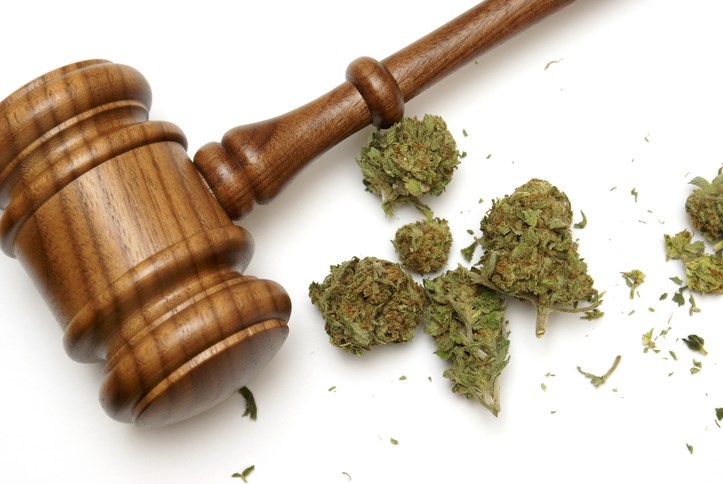Recreational cannabis is now legal across Canada, but western entrepreneurs trying to sell it are facing conflicting and confusing government regulations and laws.
Most lawyers advise business owners to independently get advice from qualified professionals – lawyers or consultants well versed in due diligence.
They expect to see several different kinds of infractions as cannabis businesses roll out, and note that because the industry is new, there are yet to be test cases to clarify wording in government laws.
That means that clarity on the laws will be unlikely until some private business owners are charged – though some who run afoul of laws may not even consider themselves to be business owners.
For example, social influencers – people who regularly post Instagram updates on their lives – may have to be particularly careful to avoid legal jeopardy.
The Cannabis Act forbids marketing a cannabis brand to youth and marketing that brand in a way that glamorizes a lifestyle.
Vancouver lawyer Nathan Lidder, whose practice is about 85 per cent cannabis related, said one solution for a cannabis producer could be to avoid using an Instagram account, because it might invite law enforcement scrutiny.
Other forms of marketing, such as putting a corporate brand on pens, might even run afoul of the law because they could arguably influence children, he said. Allowing a minor into a store, or even into the parking lot, also contravenes federal law.
Any retailer selling to a person who might resell to a youth, or someone who might deliver the product, is liable to be fined between $7,000 and $11,000 and could face a seven-to-11-day licence suspension.
Tiffany & Co. Law Corp. founder Tiffany Walsh said private retail operators can legally sell only cannabis-related products. That means fresh and dried cannabis, oils, capsules and seeds as well as accessories such as rolling papers, pipes and bongs, but not T-shirts, hats or snacks.
Vancouver’s illegal dispensaries also face a starkly different regulatory landscape under the new rules.
“Some of those [pre-legalization] dispensaries have been selling other things, like coffee or treats for people to eat,” Walsh said. “That won’t be allowed under the retail store licence.”
It is not only B.C. where selling legal cannabis is a minefield for businesses.
Western Investor took a snap shot of the challenges across the West.
In Alberta, a shortage of product is a major hurdle.
“We were hoping to have all of our products,” said Jayne Kent, owner of Spiritleaf in St. Albert. Kent had high hopes of opening Spiritleaf’s doors after the Alberta Gaming, Liquor and Cannabis Commission (AGLC) approved its licence to sell cannabis. Now it might have to push the opening back, Kent said, because licensed producers have been unable to meet consumer demand.
Chara Goodings, communications officer with the AGLC, said it receives product from 15 federally licensed producers. Stores will still have product to sell, but it will be less than anticipated. There will also be less variety available, she said.
In Airdrie, the city had yet to approve any retailers as of November, despite 17 applications.
In Okotoks, there’s no way to know how long it could be before the city sees the doors open on its first retail marijuana store. While the city has approved six retail permits, the application process to open a cannabis store is a lengthy one, said Okotoks development services director Michael MacIntyre.
“Once the applicant is approved and issued a development permit, at that point the applicant can apply for their building permit,” said MacIntyre. “Then they have to go back to AGLC for final inspection of the premises.”
In Saskatchewan, Yorkton now has two legal cannabis dispensaries. The two stores won a licence lottery last year, snagging a chance to operate in the city.
Saskatchewan has a buffet of rules and restrictions to cannabis use in the province. For retailers, provincial laws restrict sampling and only trained employees can access sealed packages, which must be stored in a locked display case, for example.
Customers can smell samples, but only from sealed displays and only samples that are secured by tethers or even radio-frequency identification tags.
In Manitoba, the province’s fourth Tokyo Smoke cannabis retail outlet opened its doors in Brandon in mid-November, a month after pot became legal. Manitoba allows cannabis retailers regulated through the Liquor, Gaming and Cannabis Authority and wholesale distribution through Manitoba Liquor and Lotteries Corp.
So far, 15 stores have opened in the province, nine of them in Winnipeg.
– With files from Business in Vancouver, St. Albert Gazette, Okotoks Western Wheel, Airdrie Echo and the Westman Journal, Brandon.



